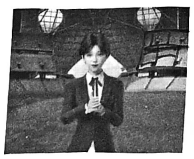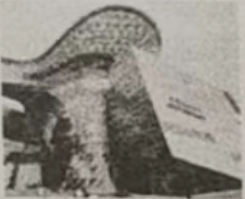
There are more than 1.5 billion people with hearing problems in the world Communicating freely can be difficult for them. However, with the help of Xiaomo, a digital (数字的) human on the Internet, the problem has been improved a lot.
Created by Alibaba Cloud, Xiaomo looks like a pretty girl from the south of China Xiaomo was designed (设计) based on the looks of a sign language (手语) teacher and an engineer who took part in the project.
In last month's Hangzhou Asian Para Games, Xiaomo served as a valuable tool for the people with poor hearing. During the games, she provided two-way translation (翻译) between Chinese spoken language and sign language. The users could just speak out what they needed, and then Xiaomo would change these voice messages into sign language. Of course, she could also change the sign language into spoken language. With its help, people found it easy to ask for directions, book tickets, watch games and so on.
It took the team about two years to develop Xiaomo. One of the challenges was that sign language has its own language system, vocabulary and grammar. They are different from those of Chinese spoken language. To get over the difficulty, researchers created a Chinese sign language translation dataset (数据库). It includes 25,000 signs collected from sign language teachers and the people with hearing problems across Zhejiang Province in China.
Besides, in sign language, one word can have many different meanings. To provide a more exact translation, the team improved Xiaomo's system and used the technology Machine Translation to choose and translate words at the same time.
Xiaomo was first created to help the people who are hard of hearing to enjoy the games better. Today, the company has already used Xiaomo in museums, tourist centers and cafes. In the near future, Xiaomo is expected to help more people with hearing difficulties in public services, such as medical help, banking services, etc.
 B.
B.
 C.
C.
 D.
D.




